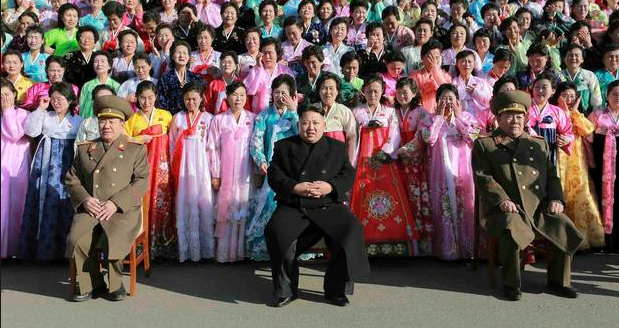
Advertisement
President Donald J. Trump and members of his national security and foreign policy teams have repeatedly said they don’t want a new war with North Korea. But they have all repeatedly stated as well that should North Korea eventually pose an unacceptable threat to U.S. security, that option would not be taken off the table.
We may have reached that point.
Over the weekend Pyongyang once again defied U.S. and international warnings to refrain from further development of its ballistic missile program, testing an ICBM that had never before been seen. As reported by Agence France Presse, U.S. officials have confirmed that the missile — believed to be a two-stage, liquid-fueled KN-17 as yet unseen in testing — can likely reach Alaska and may even be able to travel further.
As to whether the missile is capable of carrying a nuclear warhead — specifically, whether North Korea has solved that technological dilemma yet — remains less clear. However, U.S. and allied officials are confident Pyongyang is closing in on the capability. (RELATED: Report: U.S. military gave Trump new options for North Korea after detecting new nuclear site activity)
AFP noted further:
The North’s Academy of Defence Science, which developed the missile, said it reached an altitude of 2,802 kilometres and flew 933 kilometres, calling it the “final gate to rounding off the state nuclear force.”
The test drew a strong rebuke from the U.S.
“The United States strongly condemns North Korea’s launch of an intercontinental ballistic missile. Testing an ICBM represents a new escalation of the threat to the United States, our allies and partners, the region, and the world,” Secretary of State Rex Tillerson said, adding ominously this Trump administration reminder: “As we, along with others, have made clear, we will never accept a nuclear-armed North Korea.”

In response, the U.S. and South Korea jointly held ballistic missile drills fired specifically to simulate an attack on the North’s leadership; South Korean President Moon Jae-In has said he wants to engage the North in dialogue to solve the issue, a tactic that has been utilized for decades and has never worked.
Meanwhile, the Trump administration has additionally warned North Korea it is prepared to fight if Pyongyang’s youthful, arrogant leader, Kim Jong-un, continues to provoke Washington, as reported by The Wall Street Journal.
A combined statement from U.S. Army Gen. Vincent Brooks, the top American military commander in South Korea, said, “Self-restraint, which is a choice, is all that separates armistice and war. We are able to change our choice when so ordered… It would be a grave mistake for anyone to believe anything to the contrary.”
The big game-changer will be whether North Korea actually perfects the technology enabling it to place a nuclear device atop a warhead that can be successfully fired and delivered against U.S. cities.
Without question, the biggest concern for U.S. and South Korean military planners is the fact that Seoul, the South’s capital city of 10 million, is just 35 miles from North Korea’s border, where Pyongyang has deployed an impressive collection of artillery and rocket batteries able to deliver a devastating blow.
“A single volley could deliver more than 350 metric tons of explosives across the South Korean capital, roughly the same amount of ordnance dropped by 11 B-52 bombers,” noted a report published last year by Austin, Texas-based geopolitical consultant group Stratfor.
In addition, if attacked North Korea would also likely fire on Japan, which has been conducting evacuation drills periodically for months now.
The Trump administration has been pressing China, North Korea’s principal benefactor, to use its influence to convince Pyongyang to end its missile and nuclear programs. But while Trump initially signaled optimism after his Mar-a-Lago meeting with Chinese President Xi Jinping earlier this year, he tweeted out Wednesday it did not appear as though Beijing was making much of an effort.
“Trade between China and North Korea grew almost 40% in the first quarter. So much for China working with us — but we had to give it a try!” he said.
Beijing has enforced a ban on the importation of North Korean coal, but some reports claim that’s being violated regularly.
J.D. Heyes is a senior writer for NaturalNews.com and NewsTarget.com, as well as editor of The National Sentinel.
Sources:
Submit a correction >>
This article may contain statements that reflect the opinion of the author
Advertisement
Advertisements















